religion

Shermer and Jacobs discuss: what possessed him to spend a year living constitutionally and biblically • what the Constitution really says and means • the Supreme Court’s rulings on guns, religion, women’s rights and more • what happens if you become an ultimate originalist and follow the Constitution using the mindset and tools of the Founders • why originalism is not the best approach • what happened when he carried a musket on the streets of NYC • an 18th…

Shermer and Van Leeuwen discuss: his own personal religious journey (or lack thereof) • “believe,” “make-believe,” and “pretend play” • “taking God seriously” • 4 Principles of Factual Belief • Tanya Luhrmann’s How God Becomes Real: Kindling the Presence of Invisible Others • willing suspension of disbelief • group identity • sacred values • The Puzzle of Religious Rationality • that voice we all hear in our heads • “hearing the voice of God” • hallucinations and psychoses • sleep…

Laith Al-Shawaf shares his experience attending a New Age festival undercover and exploring the beliefs and practices of the attendees.
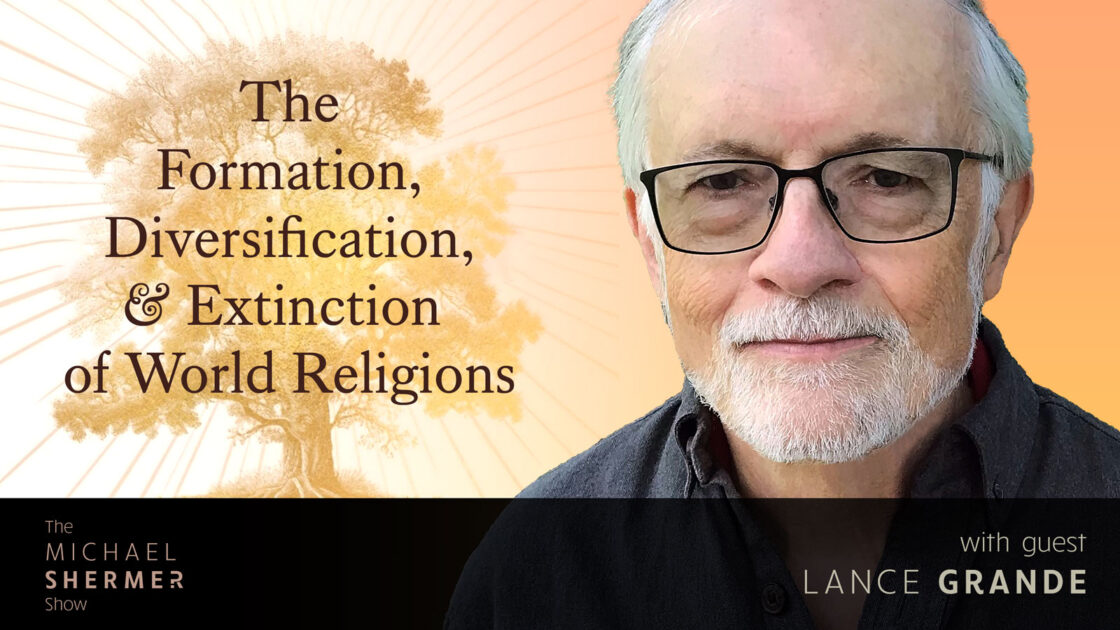
Lance Grande explores the diversity of religions using evolutionary systematics and philosophy. Grande examines the growth and interrelationships of hundreds of religions throughout history, tracing their formation, extinction, and diversification. Combining evolutionary theory with cultural records, he explores various world religions, including Asian cyclicism, polytheism, and monotheism, shedding new light on the development of organized religion.
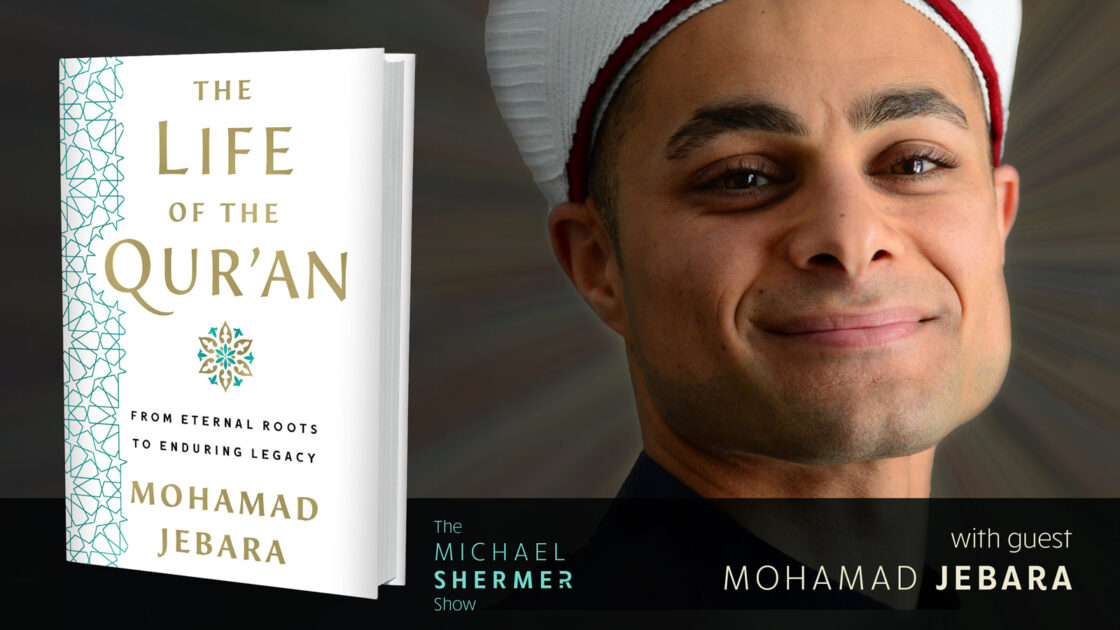
Shermer and Jebara discuss: who wrote the Qur’an and why • translation and interpretation • Is the Muslim world stagnating? How does this book aim to help? • semitic mindset • Many Westerners believe that the Qur’an endorses violence, Jihad, and Sharia Law over secular laws and constitutions. What does it really say? • Has Islam had its Enlightenment? • Does Islam and the Muslim world need reforming? • women in Islam • what percentage of Muslims want Sharia Law, and where in the world?
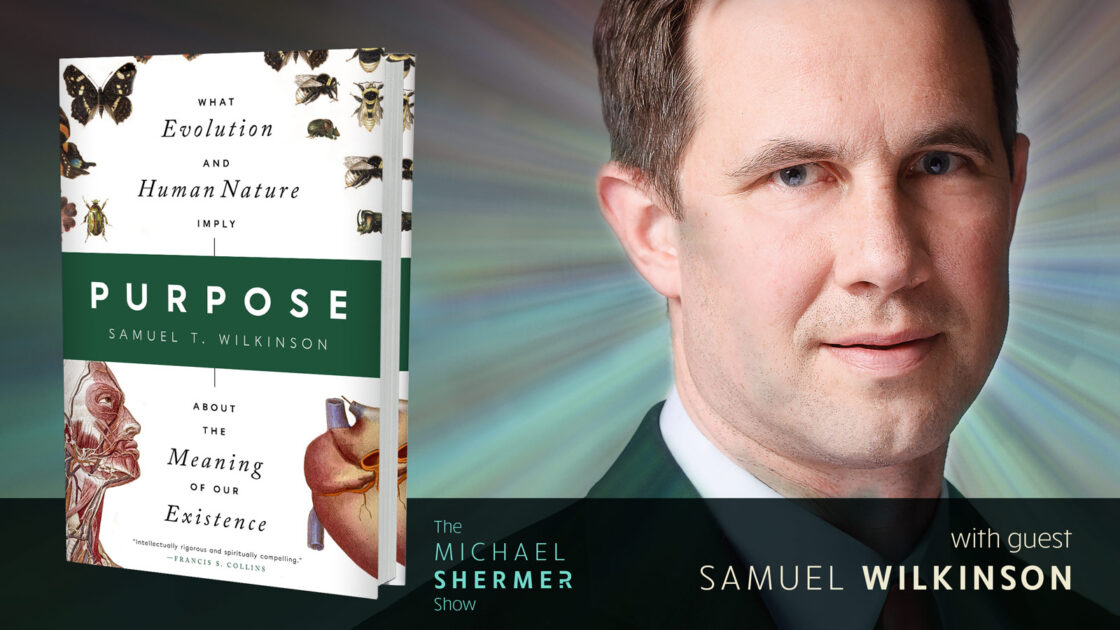
Shermer and Wilkinson discuss: • evolution: random chance or guided process? • selfishness and altruism • aggression and cooperation • inner demons and better angels • love and lust • free will and determinism • the good life and the good society • empirical truths, mythic truths, religious truths, pragmatic truths • Is there a cosmic courthouse where evil will be corrected in the next life? • theodicy and the problem of evil: Why do bad things happen to good…
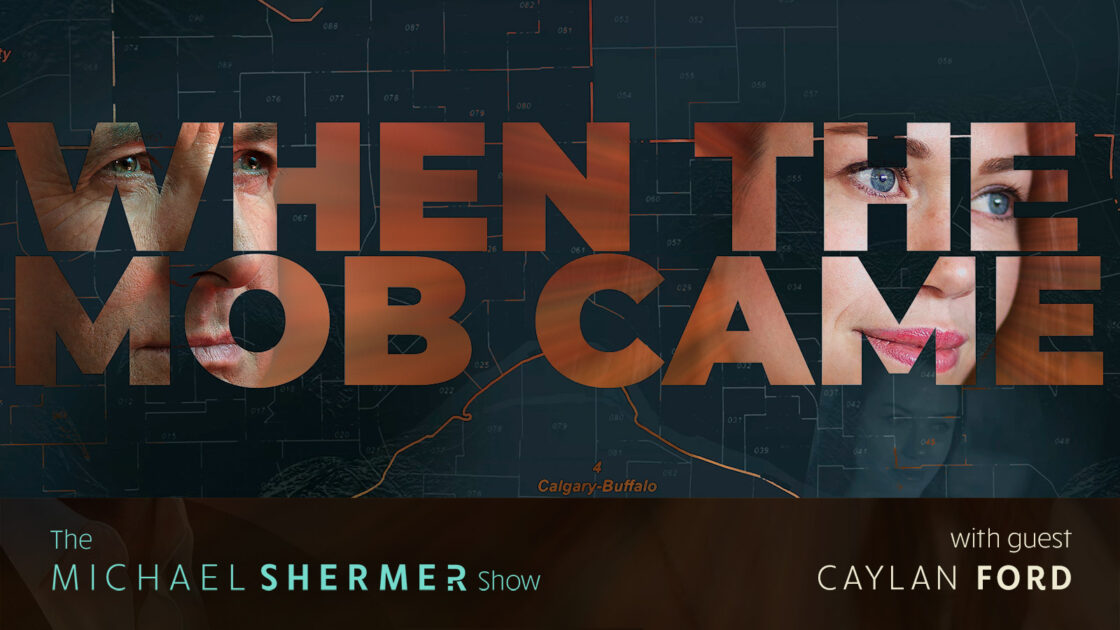
Shermer and Ford discuss: • education reform • public vs. private vs. charter schools • the blank slate • Thomas Sowell’s Constrained Vision vs. Unconstrained Vision • French Revolution vs. American Revolution • truth, justice, and reality • what promotes humanity and what degrades it • transhumanism • political correctness • identity politics • cancel culture • totalitarianism • preference falsification • free speech • hate speech • how to stand up to cancel culture.
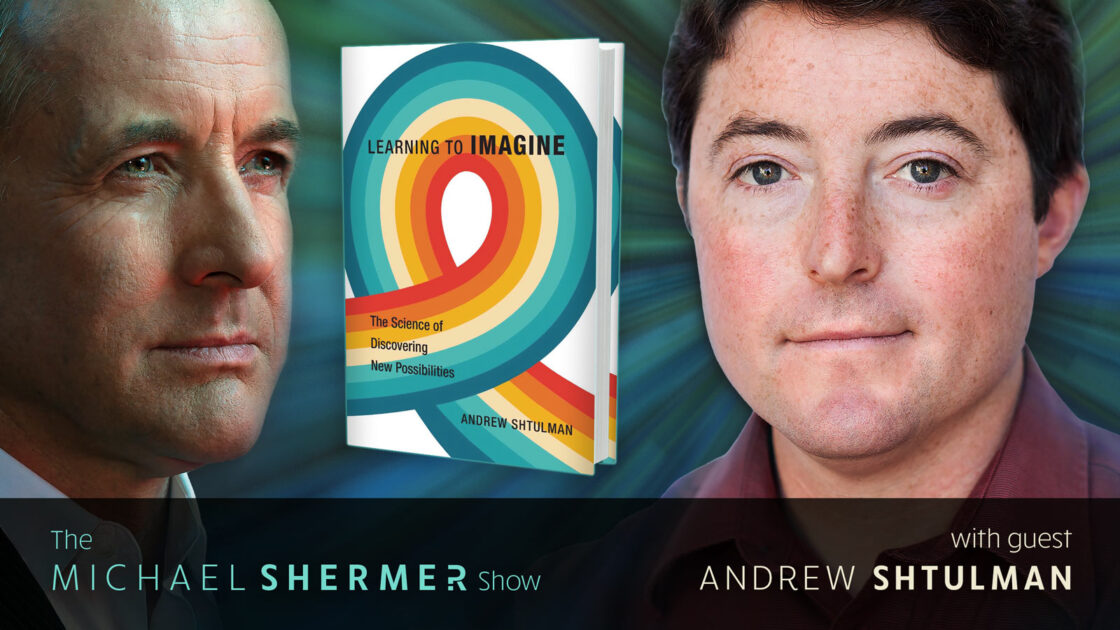
Shermer and Shtulman discuss: • imagination: the capacity to generate alternatives to reality • imagination’s purpose and structure • anomalies and counterfactuals • principles: scientific, mathematical, ethical • models: pretense, fiction, religion • development of imagination • how children understand causality • purpose of pretend play • theory of mind • religious practices • AI and creativity • The Beatles • Montessori education.
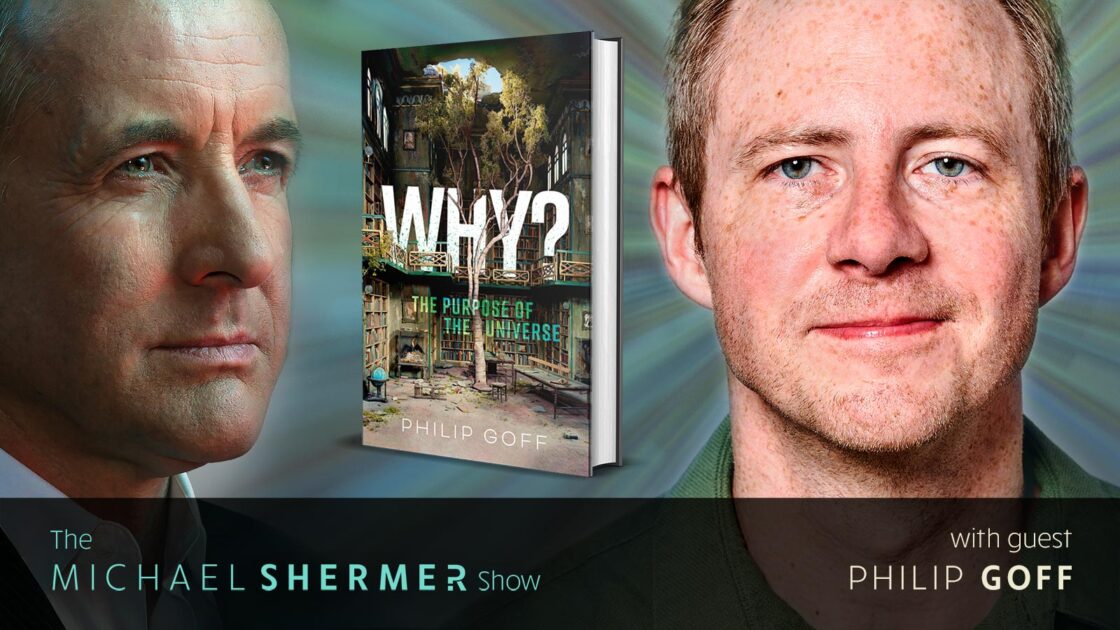
Shermer and Goff discuss: • living in a computer simulation • the universe itself as a conscious mind • cosmic purpose • fine-tuning • free will • consciousness (the ground of all being?) • morality and the Is-Ought Fallacy • What is my purpose in life? • religious vs. secular answers to the purpose question • awe and how to be spiritual but not religious.

Michelle Ainsworth reviews: G-Man: J. Edgar Hoover and the Making of the American Century by Beverly Gage (2022) and The Gospel of J. Edgar Hoover: How the FBI Aided and Abetted the Rise of White Christian Nationalism (2023) by Lerone A. Martin.
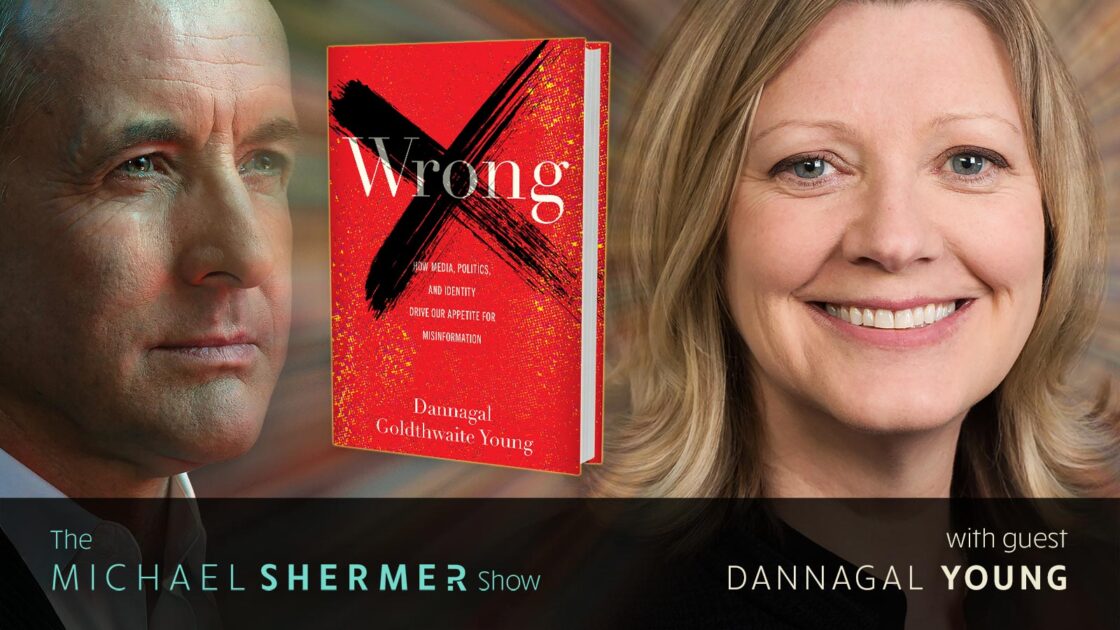
Shermer and Young discuss: how do you know if you are wrong, or that someone else is wrong • the evolution of reason: veridical perception or group identity? • the 3 “Cs” of our needs: comprehension, control, community • open-minded thinking • intellectual humility • political polarization • echo vs. identity chambers • social media • lies • disinformation • Donald Trump • democracy • science and morality • solutions to identity-driven wrongness.
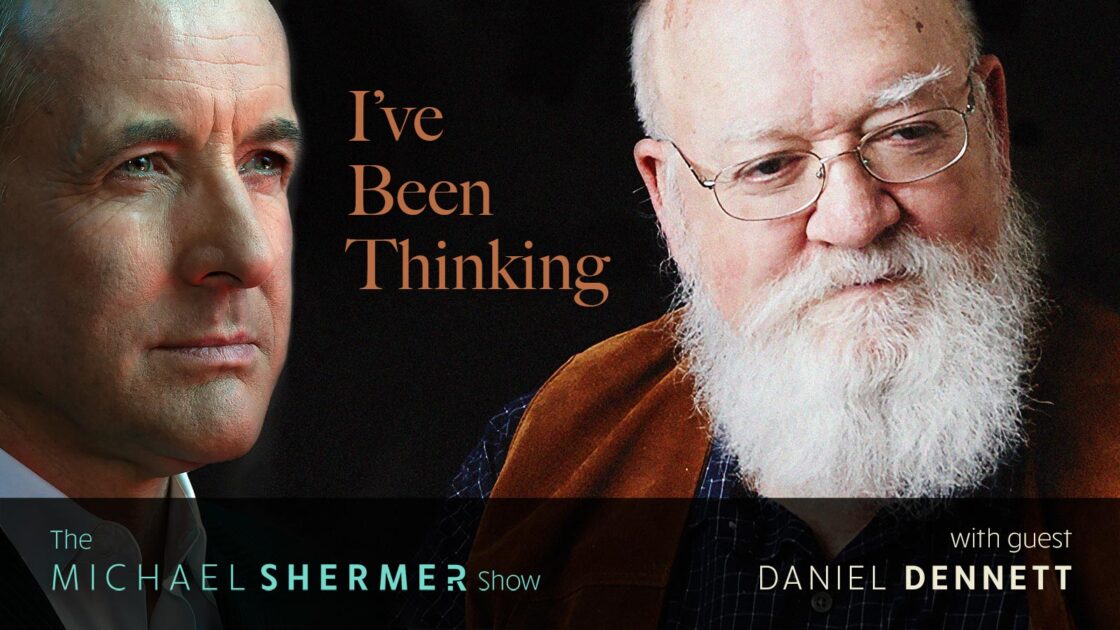
Preeminent philosopher and cognitive scientist, Daniel Dennett has spent his career considering the thorniest, most fundamental mysteries of the mind. Do we have free will? What is consciousness and how did it come about? What distinguishes human minds from the minds of animals? Dennett’s answers have profoundly shaped our age of philosophical thought. In his autobiographical I’ve Been Thinking, he reflects on his amazing career and lifelong scientific fascinations.

Shermer and Dallek discuss: the origin of the John Birch Society • the “right,” “conservatism,” “liberalism” • “mainstream” vs. “fringe” • Cold War context for the rise of the radical right • the link between the John Birch Society and radical right figures today like Michele Bachmann, Sarah Palin, Marjorie Taylor Greene, Glenn Beck, Alex Jones, Ron Paul, Rand Paul, and Donald Trump • COVID denialism, vaccine disinformation, America First nationalism, school board wars, QAnon plots, allegations of electoral cheating…
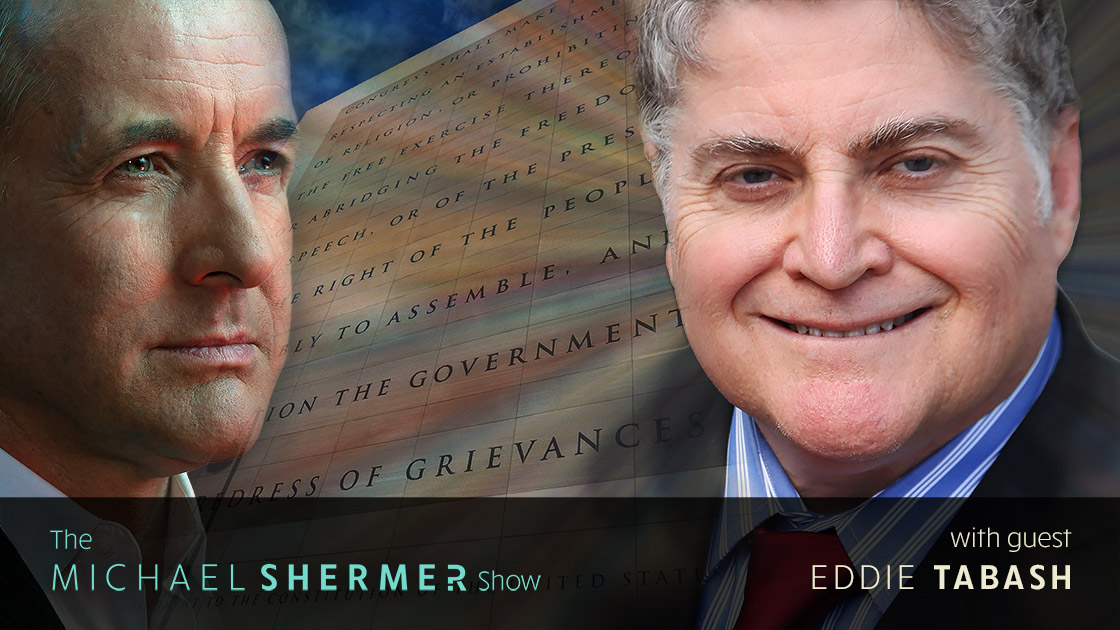
Shermer and Tabash discuss: the history of the relationship between church and state • the founding framers of the U.S. Constitution and their arguments for separating church and state • Madison and Jefferson • how most of the 13 colonies had government-sanctioned religions and religious tests for office • the Constitutional Convention and the First Amendment • the push by some Republicans to hold a new Constitutional Convention and redesign the entire U.S. Constitution • the religious beliefs and attitudes of…
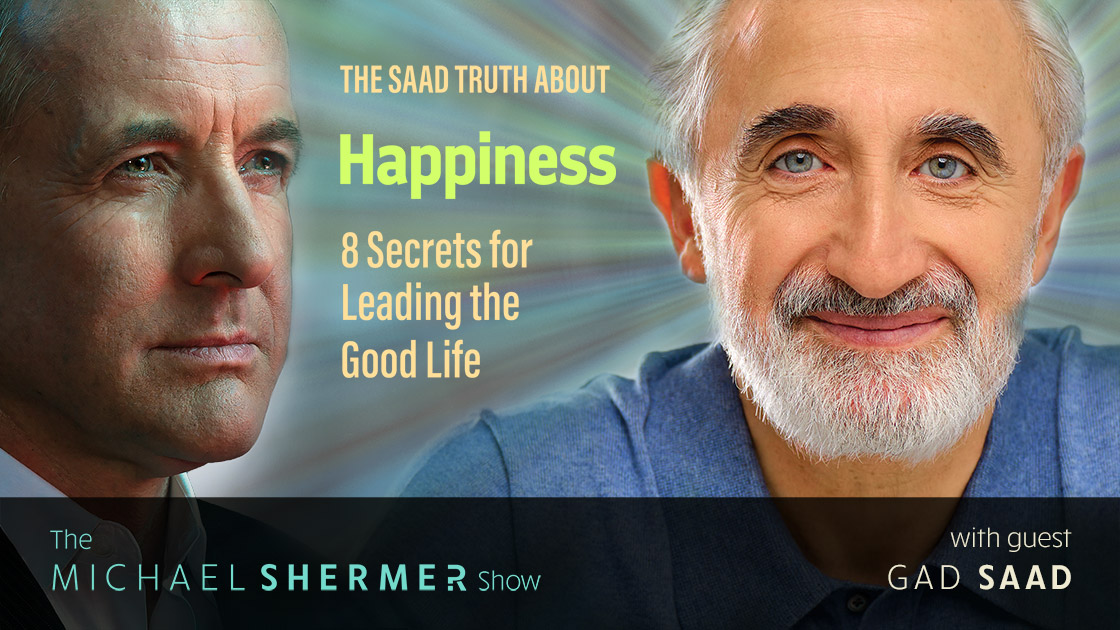
Shermer and Saad discuss: operational definitions of the “good life,” “happiness,” and “well being” • emotions • eudaimonia (the pursuit of meaning) versus hedonism (the pursuit of pleasure) • genetics and heritability • cultural components • the Big Five (OCEAN) • marriage (mate selection) • health • exercise and stress reduction • religion • anti-fragility • a playful outlook and curiosity • variety (the “spice of life”) • what the ancient Greeks got right about living the good life •…
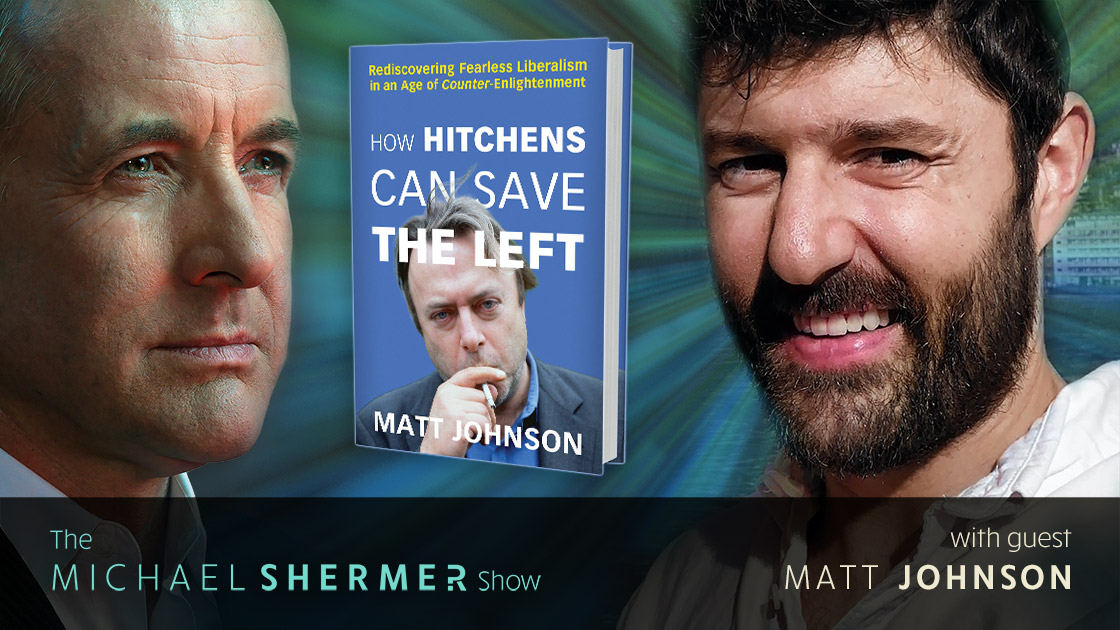
Shermer and Johnson discuss: Hitchens on free expression, identity politics, radicalism, interventionism, authoritarianism, patriotism, internationalism, America and Liberalism, reparations, religion, and death • identity politics • hostility to free speech • why Hitch did not become a neoconservative, warmonger, or imperialist • Enlightenment Liberalism • Trump and the division of the right • Hitchens on the precursors to Trump • Putin and Russian nationalism.
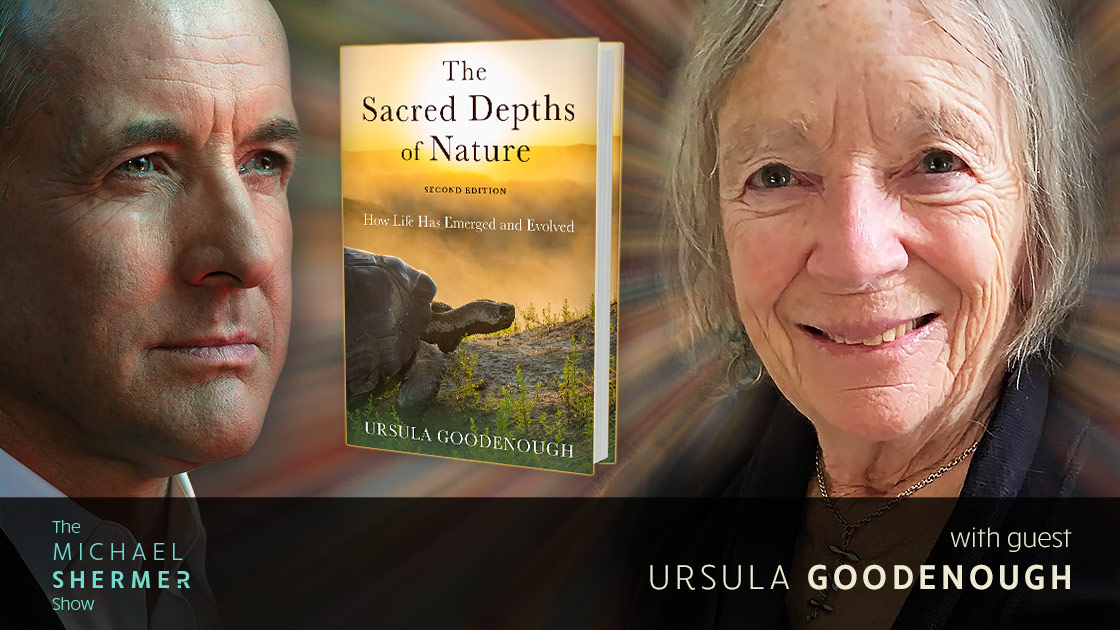
Shermer and Goodenough discuss: origins of her personal beliefs • origins life, RNA, DNA, consciousness, language, morality • myths and religions • what it means to be “religious” • religious naturalism • where the laws of physics came from • why the universe seems so strange • chance and evolution • fine tuning of the cosmos • autocatalysis and emergence • purpose of religion • ethics and morality without religion.

Shermer and Ehrman discuss: Ehrman’s religious journey • Who wrote the Bible and why? • how to read the Bible and the book of Revelation • Who wrote Revelation and why? • why Jesus spoke in parables • why worry about climate change if the world is going to end soon? • David Koresh and Waco • Reagan and end times politics • how Jesus became a capitalist and militarist • faith healers, televangelists, and other Christian con artists • Christian ethics and what Jesus really said about the poor…
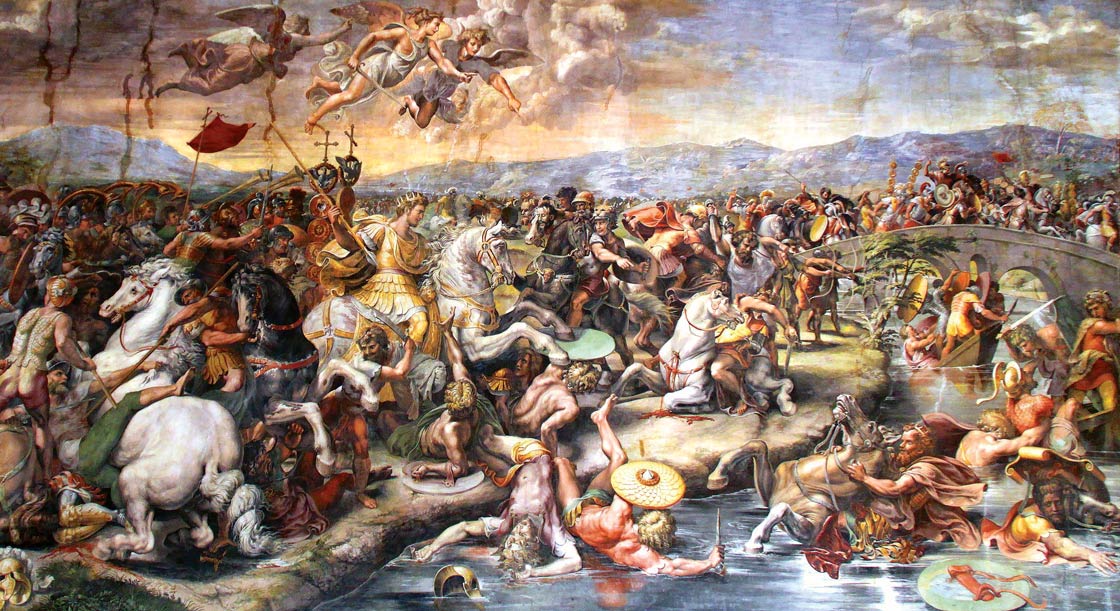
In the Fourth Century, when the Emperor Constantine made the Roman Empire Christian, he created an unstable amalgam. The tenets of Christianity could only be made to support the exercise of political power through torturous forms of theology and logic. Fifteen centuries of violence would eventually cause the combination of Christianity and the state to decompose, forming secular nations in the process. Nationalist leaders, their authority upheld by the gospels of power written by Machiavelli and Nietzsche, could wield military…
What are we to make of the fact that a number of far-right politicians and activists are now owning the label “Christian Nationalist”? Conversely, conservative Christian leaders are repudiating Christian nationalism by reframing it as a type of extremism relegated to the fringe or, oddly, a “virulent form of secularism”. According to the Family Research Council the term is part of a plot to suppress the votes of conservative Christians. This article explores these tensions in this rising threat to…
NEXT →



























